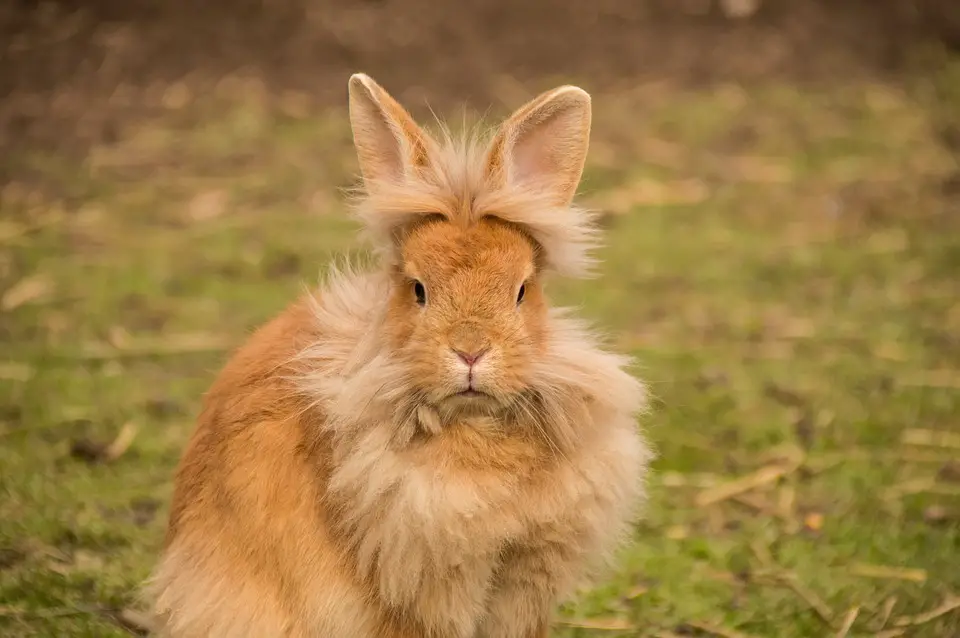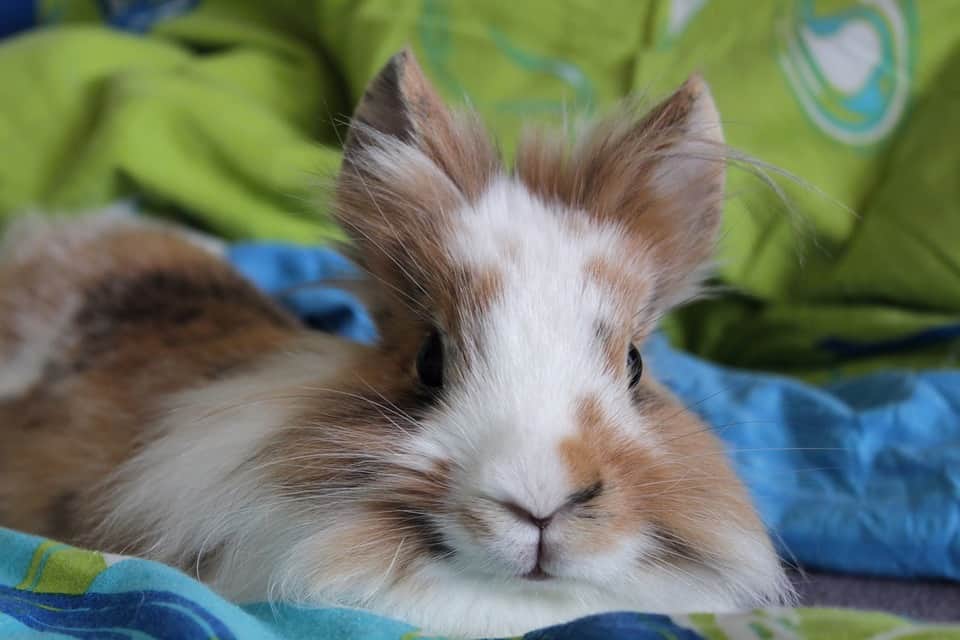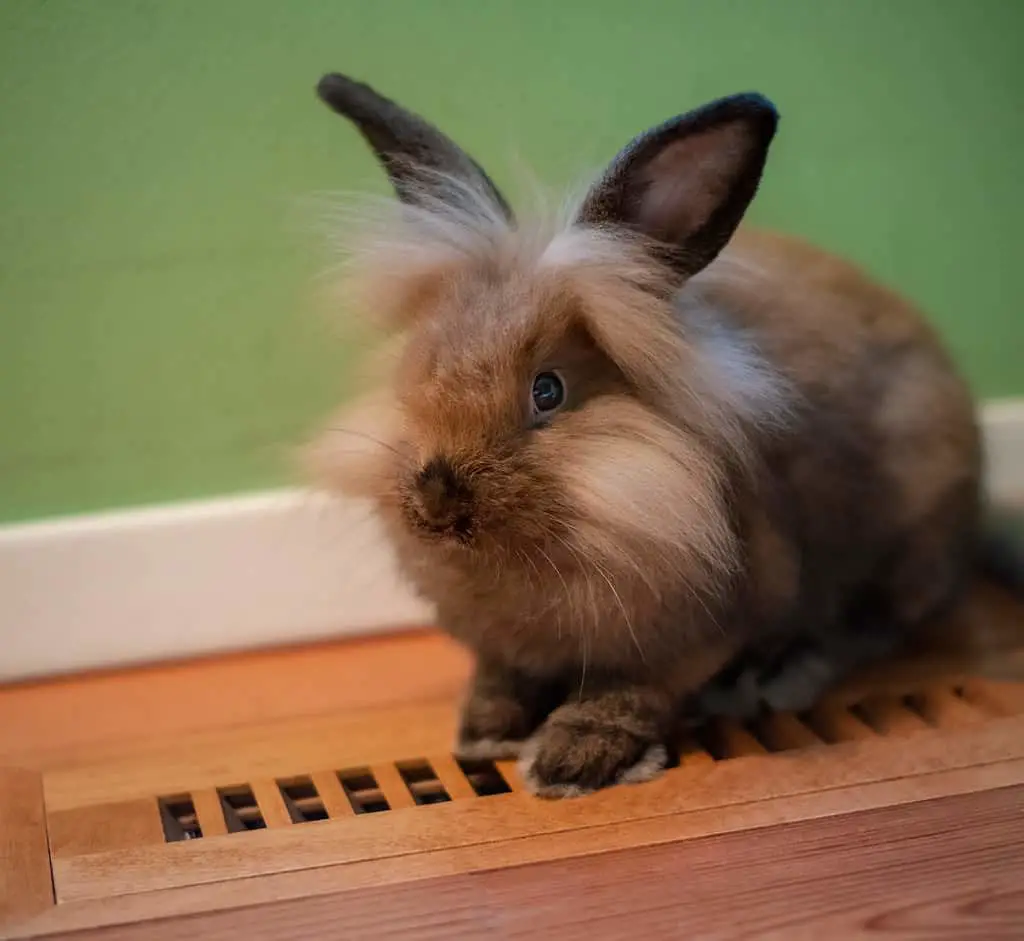Lionhead Rabbits are very devoted pets. Pitiful, dear, cheerful, intelligent, they love the company of people. Are you considering joining this long-lasting carrot lovers to your family?
Anyone who has ever owned a Lionhead rabbit can attest to the fact that they are some of the most loyal and loving pets. Similar to dogs, Lionhead rabbits are people lovers and take great joy in the simple fact of being in the company of their owners.
If you are someone who is interested in adopting or buying a Lionhead rabbit, then this page is for you. The goal of this page is to provide you with some important pro-tips when it comes to Lionhead rabbit care and owning of this precious pet.
Contents
Lionhead Rabbit Supply Checklist
1. Lionhead Rabbit Cage -Although the rabbits may spend their time outside the cage, chasing around the apartment, you will still need to provide them with their own private space.
It is recommended for Lionheads that the cage be at least 25 inches (60 cm), wide and long. See our review of Best Indoor Cages for Lionheads, or if you have space you may consider getting a rabbit hutch for indoor use.
Typically, the cage will feature:
- Water bottle – It will be included with the most commercial cages available, since the water bottle is an integral part of every rabbit cage. The bottle you choose must meet certain criteria. For more options see also Best Water Bottles for Rabbit Cages.
- Food bowl – Typically, it is included with the cage you buy, however any small plastic bowl is fine.
- Hay Holder – Included with most of the cages.
2. Cage bedding – Straw, sawdust or hornbeam can make good cage bedding. Which will keep the bottom of the cage dry. Read more: Cage Bedding for Lionheads.
3. Litter Box – Sometimes called a litter tray or litter pan is an indoor feces and urine collection box for rabbits that instinctively or through training will make use of such a repository. It does not need to be fancy, a cheap rabbit litter box will still get the job done. See also: Best Cheap Litter Boxes for Lionheads.
4. Numerous and various Toys – If you do not allow rabbits to be busy all the time, they will find their own fun in the forms of your carpets, couches, armchairs, and other furniture. Therefore, especially if you keep your pet rabbit indoors, you must provide them alternatives for chewing. See also: Best Toys For Lionhead Rabbits.
5. Food (Hay, Pellets) – Check our list of best hays for rabbits and best pelleted food.
6. Wire covers You need to keep in mind that rabbits are known to get into wires. Chewing on them and electrocuting themselves in the process. Therefore make sure to rabbit-proof your home before you bring the Lionhead at your home.
7. Playpen – The easiest way to rabbit-proof your home is to set up a pen in your home that the rabbit can roam in. If it is warm outside, then you may even want to put the pen out there too. Read more: Best playpens for rabbits.
8. Nail clippers – Rabbit nails should be trimmed every 4 – 6 weeks depends on breed. This is the nail clipper we recommend.
9. Rabbit brush – Lionhead rabbits shed and that is very normal, but you will need to have a good rabbit brush for grooming sessions. See our list of best brushes for rabbits.
A great starter pack for Lionhead rabbit, that includes food bowl and water bottle:

Avoid completely plastic cages as the rabbits may destroy them after a while. And remember, it would be ideal to place the cage in a quiet, warm, well-ventilated area in your apartment, keeping in mind that rabbits are more capable of enduring cold than heat when fixing the temperature.
See also: The 15 Best Rabbit Cages For Indoor Use.
What to Feed Your Lionhead
| Lionjead Rabbit Food | Daily Needs |
|---|---|
| Hay | 70 – 80 % |
| Pelleted Food | 10% |
| Vegetables | 10 – 15% |
| Fruits | max 5 % |
Hay is generally considered a staple for rabbits of any age, especially young ones because it is incredibly easy for the rabbit to digest.
Good pre-made mixes for rabbits can be found at any local pet supply shop. Typically, their diet will consist of hay, pellets, vegetables. These can include the stereotypical carrot, but also parsley, dandelion leaves, lettuce, and a wide variety of seeds.
Be sure to keep a rotating supply of water to ensure their water supply is always clean and fresh.
Rabbits are also known to be incredibly partial to fruits, such as pears, apples, strawberries, and even bananas. You could give them peaches, plums, apples, any berries, etc.
Read more details on what to feed your Lionhead rabbit under Lionhead Rabbit Diet.
See also:
– Best Pellet foods for Lionhead Rabbits
– Best Hays for Lionhead Rabbits to Eat
Lionhead rabbit temperament
Part of the Lionhead rabbit care is understanding his behavior. The Lionhead rabbit prefers to be lazy and should be kept as little as possible in hands or in the lap.
They should be treated gently and with love. They do not like being lifted out by the ears or the skin behind their neck.
On the other hand, they love to cuddle but be sure to support their stomach with one hand, and their bottom with another, so they can feel safe. Some of them like to nestle their head into the area between your arm and your side.
This rabbit breed is not a good choice for people who are rude, impatient, or somewhat clumsy and aggressive.
Namely, the Lionhead rabbits are very sensitive to the behavior of owners that endanger them in any way and will immediately express their dissatisfaction with a bite, scratch, or simply escape and hide.
These bunnies seek attention and tenderness, but just like the cats, they seek attention mostly when it suits them and not their owners.
At first, the bunny will seek less attention because it will take some time to gain the trust of the owner.
The Lionhead rabbits are pretty intelligent pets and they are easy to train. Already in the shorter period, most rabbits learn to understand some words or commands and if they are well trained, they can recognize their owner and eat from his hand.
They are very independent beings, so do not expect absolute obedience.
The Lionhead bunnies are active and curious animals and they like to play. They are very friendly and enjoy the company of other rabbits as well as humans.
The Lionhead rabbits in general get along with all other types of pets, but they should be supervised.
Keep Your Rabbit Clean
Rabbits are known to be some of the cleanest household pets, even surpassing cats in that regard. Rabbits, unlike a lot of other pets, are relatively odor-free.
Given this, there is generally not a need for routine bathing of your rabbit friend. Rabbits are avid self-groomers, spending lots of their free time bathing themselves and their fur. Still, it is important to brush them occasionally so that too much of their fur doesn’t end up in their mouth. Nor down their stomach, as excessive hair consumption can be bad for their digestion.
As far as bathroom protocol, rabbits are generally creatures of habit who prefer to do their business in the same place every day. Most of the time, they will pick a good location in the cage or in the foliage of your apartment. If you would prefer they go somewhere specific, they are very easy to train, being fast learners and very adaptive.
Maintaining Health
You know that you are doing a proper lionhead rabbit care if you little bunny is healthy. You need to keep your lion head healthy and feeling loved.
Clear eyes, a dry muzzle, and lots of activity and running around are signs that your little guy or girl is doing well.

You will need to keep something in their cage for which to sharpen their teeth, such as apple branches. Given that their teeth never stop growing, it is advised that you aim to maintain their incisor teeth at a stable size.
Be sure to take into consideration the effects of open windows and doors on their environment. Lionheads are very susceptible to weather conditions. You may want to weigh the option of spaying or neutering your Lionhead, as well.
It can sometimes pose risks for them, but it also has some positive benefits. Consult your local veterinarian if you are interested in knowing any details about these operations, or have any health questions in general.
With proper Lionhead rabbit care, the average Lionhead lifespan is about 8-10 years.
You can read more about the Lionhead rabbit facts about health under Health And Illness.



